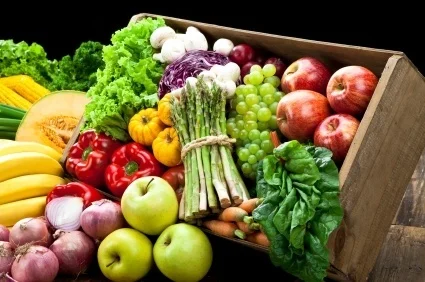The government through the Agriculture and Food Authority (AFA), has clarified on reports that it would ban over 3 million farmers from supplying fruits and vegetables in the local market.
Earlier reports had indicated that before sowing a seed, farmers will be required to apply for National Environmental Management Authority (NEMA) licenses at a minimum cost of Sh10,000.
In addition, the farmers will also be required to pay Sh5,500 to carry out soil and water analyses and pay Sh5,000 for certification with a national or international standards certifier.
However, AFA clarified that the rules only target large-scale farmers, who would be required to obtain an environmental impact assessment.
“In the Standard, large-scale farmers whose farming activities can affect the environment are required to have an environmental impact assessment,” read part of the statement.
“This is aimed at ensuring sustainable farming and conservation of the environment and applies only to farmers who choose to be certified under the standard.”
The new requirements are part of the rules contained in the Kenya Standard 1758: 2016 (KS 1758) Horticulture Industry Code of Practice aimed at ensuring food safety.
Explainer: Herbs to use as organic pesticides on your crops
”At the local level, there have been food safety and quality concerns on domestically produced and consumed fruits and vegetables,” AFA states.
”The Standard, therefore, seeks to close this gap by ensuring horticultural produce consumed locally meets the same safety and quality requirements as those that are exported.”
The vegetable bill states that only large farmers, companies, and importers would be permitted to supply fruit and vegetables in Kenya, with any trader buying fruit and vegetables from uncertified farmers facing stiff penalties.
However, according to AFA, subscription to the standard is not mandatory, and farmers are at liberty to be certified to the Standard or not.
The Authority further said that no trader is prevented from purchasing produce from uncertified farmers adding that the certification is meant to ensure crops are produced under standards that meet global requirements.
“At a global level, there are numerous certification standards for different markets and different market destinations have a preference for particular standards.
Certification to any of the standards, therefore, gives an advantage of access to those particular markets requiring that Standard,” the statement elaborated.
According to the Fresh Produce Exporters Association of Kenya, only 4% of all the country’s horticultural produce (Fruits and Vegetables) is exported while 96% is consumed locally.
The Association says that over 90% of all the produce consumed locally is produced by small-scale farmers.









